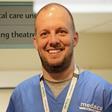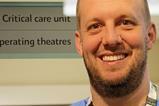Martin Watts explains how a new insourcing model is helping to reduce long waits for disadvantaged patient groups with more complex conditions
With recent reports showing just how much the independent sector is doing to support the elective recovery, it is sensible for NHS England to be reiterating the position that it is right for trusts to be using “all available capacity” at their disposal.
Sponsored by
However, in a recent Nuffield Trust article, Sally Gainsbury suggests that more activity in the independent sector may also be driving health inequalities in the backlog, as the patients treated tend to be from more affluent areas.
Why is there a difference in which patients get referred to the independent sector?
There are multiple factors involved, but the key issue here is that the independent sector is predominantly focused on doing high volumes of straightforward, routine cases. Patients from more disadvantaged groups are much less likely to fall into the “straightforward” category and so they rarely make it onto the lists of cases referred to private hospitals or traditional insourcing providers.
With less healthy lifestyles, people from deprived homes are known to be more than twice as likely to develop conditions like diabetes or chronic obstructive pulmonary disorder. Even if their need for elective surgery is not related to their condition, it represents a comorbidity, and so a much higher proportion of patients from disadvantaged groups will be classed as more complex or higher-risk cases. Even patients with high BMIs fall into this category. As a result, they can’t be easily helped via the independent sector (outsourcing or insourcing), and they end up waiting longer than patients with more routine needs.
Keeping these patients within the NHS used to make complete sense, in the NHS we used to know, where theatre teams could make time for complex elective care work.
Now, with unprecedented backlogs for cancer patients and higher demand for emergency care than ever before, this logic is beginning to fail.
Rethinking insourcing services so more complex cases can be tackled
There is a way though, that insourcing providers can help. It requires a different approach, with an insourcing service that is more integrated with, and embedded into day-to-day NHS operations.
Medacs teams have been using this approach since the elective recovery started and working in close partnership with trusts and their substantive staff, we’re successfully ensuring many more complex patients get the surgery they need sooner.
At present, using what I call our “allied” model, one in every six procedures that we do is classed as complex (ASA3 or higher).
We also gather a lot of data from the clinical coding we do on behalf of the NHS, and while we do not record ethnicity or socioeconomic status, statistically we know we will be treating more patients from deprived backgrounds because they have more long-term conditions. They are also the patients that will develop more complications the longer they wait for treatment.
With our administrative teams also supporting many of our NHS partners to schedule procedures, we witness firsthand how patients feel when they finally get a date for their surgery. We also know how much they appreciate the convenience of weekend appointments in their local hospital with their regular consultant (via our allied insourced services). This also supports the patient choice agenda.
So we applaud NHSE for reiterating their support for services like insourcing, and we encourage trusts to consider the merits of more innovative models that are working on reducing health inequalities.
For more information contact me directly or visit our website.






























